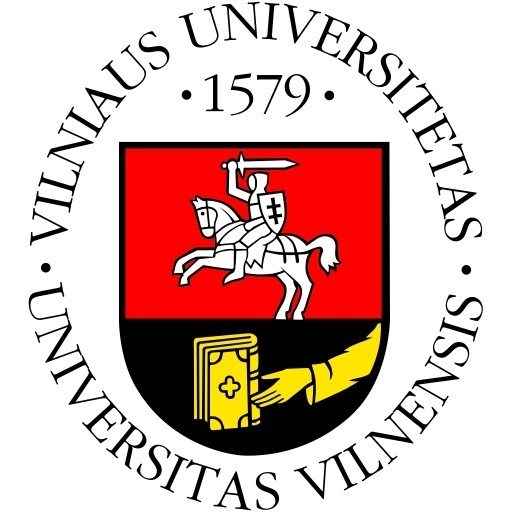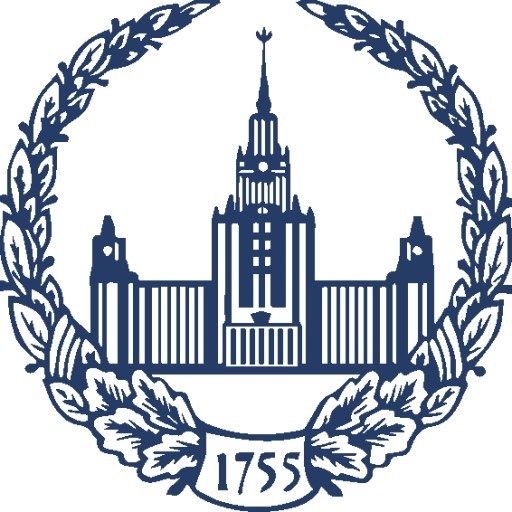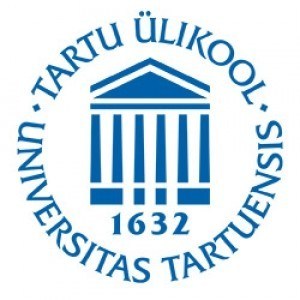Photos of university / #dartmouthcollege
The Russian Studies program at Dartmouth College offers students a comprehensive exploration of the history, culture, language, and political developments of Russia and the broader Eastern European region. Designed for those interested in gaining in-depth knowledge of one of the world's most influential nations, this program combines rigorous academic coursework with immersive linguistic and cultural experiences. Students will develop proficiency in the Russian language through language courses tailored to various proficiency levels, from beginners to advanced speakers. The curriculum encompasses a wide range of disciplines, including history, literature, political science, and area studies, allowing students to analyze Russia's complex societal transformations, its rich literary traditions, and contemporary political system.
Throughout the program, students are encouraged to engage critically with primary texts, historical documents, and multimedia resources, fostering a nuanced understanding of Russia's diverse cultural heritage and its role on the global stage. The program includes opportunities for research, internships, and study abroad experiences in Russian-speaking countries, which help students gain practical skills and firsthand knowledge of the region. Faculty members are renowned scholars in Russian studies, offering mentorship and personalized guidance to help students achieve their academic and professional goals.
Graduates of the Russian Studies program at Dartmouth are well-prepared for careers in academia, government, international organizations, journalism, and business. They acquire valuable intercultural communication skills, regional expertise, and language fluency that are highly sought after in a variety of international contexts. The program emphasizes critical thinking, analytical writing, and cross-cultural understanding, equipping students to contribute thoughtfully and effectively in complex global environments. Whether pursuing advanced degrees or entering the workforce directly, students emerge from the program with a solid foundation in Russian language and studies, ready to navigate the interconnected world with expertise and cultural sensitivity.
THE MAJOR IN RUSSIAN
Prerequisite: Russian 28 (Intermediate Russian II)
Requirements: Russian 29 (Intermediate Russian III); one course in the sequence 41-42 (Advanced Conversation and Composition, Advanced Grammar I); Russian 71 (Advanced Seminar in Russian Culture); two courses in the 30s which must include Russian 31 (Transgressive Novels: Masterpieces of Russian Fiction; Twentieth Century Russian Literature: Revolution, Terror, and Art; Dostoevsky and the Problem of Evil; "The Seer of the Flesh": Tolstoy's Art and Thought; Special Topics in Russian Literature; The Sound of Silence: A Chekhov Writing Workshop; Madmen, Holy Fools, & Fanatics in Imperial Russia; Russian Fairy Tales); and one culture course (numbered 10-19). In addition, majors must take four additional courses, for a total of 10. Those concentrating on language would select at least some of these four courses from the forties; those focusing in culture would select additional courses in the teens; and those interested primarily in literature would design a major with an emphasis on courses in the thirties. Two courses from the LSA+ may be counted toward the major, one of which may be counted as a culture course. The culminating experience requirement must be satisfied by completing Russian 71 or Russian 86 (Senior Seminar). In addition, those writing an honors thesis will enroll in Russian 87 (Thesis), and may also take Russian 85 (Independent Reading) as part of their preparation for the thesis.
Note: Students may receive a certificate in Russian Area Studies by:
Completing all the requirements for the major in Russian and,
Taking four courses from among those offerings in other departments that may normally be used to satisfy the requirements for the Russian Area Studies Major. Such students will have both the major in Russian and the certificate in Russian Area Studies listed on their transcripts.
THE MAJOR IN RUSSIAN AREA STUDIES
Prerequisite: Russian 3 (Introductory Russian)
Requirements: A total of ten courses, which must include Russian 27, 28, and 31 (Intermediate Russian I; Intermediate Russian II; Transgressive Novels: Masterpieces of Russian Fiction). Of the remaining seven courses, at least two must be in Russian and one course must fulfill the culminating experience. The Area Studies Major will include courses both from within the Russian Department and from such departments as History, Government, Economics, and Music, that, together, provide a cogent study of one or more topics with a focus on the region. Two courses from the LSA+ may be counted toward the major. The major should be planned in consultation with an advisor and the courses outside the department need to be approved by the chair. For the culminating experience, students must write a thesis (Russian 87), take Russian 86 (Senior Seminar), or, with the approval of the Department faculty, designate a course in the Russian Department or another department that will serve to satisfy the requirement.
For students contemplating careers in business, international relations and diplomacy, the major in Russian Area Studies offers courses in Russian geography, Russian history, the Russian political system and Russian culture. Russia is the largest country in the world — a land of huge untapped resources endowed with a rich cultural heritage. Through these courses, students gain an understanding of its vast ethnic and religious diversity.
THE MINOR IN RUSSIAN
Prerequisite: Russian 3, or permission of the chair. Requirements: a total of six courses including: Russian 31
One or two of the following courses: Russian 10-19 (Introduction to Russian Civilization; Special Topics in Russian Culture; Ethnicity and Nationalism in Russia and the Neighboring States; Slavic Folklore: Vampires, Witches and Firebirds; The Age of Brainwashing: A History of Russian and Eastern European Film; Russian Theater; Understanding the Russians: The Role of Language and Culture in Communication)
Up to four other Russian courses numbered 22 or higher, for a total of six courses beyond the prerequisite, and
Students may count two of the LSA+ courses toward the minor.
THE MINOR IN RUSSIAN AREA STUDIES
Prerequisite: One of the following courses: Russian 10, 13, 19, or 21 (Introduction to Russian Civilization; Slavic Folklore: Vampires, Witches and Firebirds; Understanding the Russians: The Role of Language and Culture in Communication; Russian Civilization: Study Abroad).
Requirements: A total of six courses including: Russian 31; and five courses chosen from the following: Russian 10, 11, 13, 14, 18, 19, 21, 22, 23, 32, 35, 36, 48, or 71 (Introduction to Russian Civilization; Special Topics in Russian Culture; Slavic Folklore: Vampires, Witches and Firebirds; The Age of Brainwashing: A History of Russian and Eastern European Film; Russian Theater; Understanding the Russians: The Role of Language and Culture in Communication; Russian Civilization: Study Abroad; The Russian Language: Study Abroad; The Russian Language: Study Abroad; Twentieth Century Russian Literature: Revolution, Terror, and Art; Dostoevsky and the Problem of Evil; "The Seer of the Flesh": Tolstoy's Art and Thought; Structure of Modern Russian; Advanced Seminar in Russian Culture), of which three should be numbered 32 and higher and exclusive of the course selected as a prerequisite. Not more than two LSA+ courses could be counted for fulfillment of the prerequisite and requirements. Up to two Russian area studies courses, including Economics 29 and 49 (International Finance and Open-Economy Macroeconomics; Topics in International Economics), Government 52 (Russian Foreign Policy), and History 54, 55, and 56 (The Russian Revolutions and the New Regime; Twentieth-Century Russia), or offerings of such courses as Government 84, History 96, and Music 8 (Programming for Interactive Audio-Visual Art), when dealing with relevant topics, may be counted towards completion of this minor. Other courses used to satisfy this requirement must be approved in advance by the Chair of the Department.
THE HONORS PROGRAM
Seniors who give evidence of outstanding ability and who wish to do serious research on an independent project are invited to apply for honors work. Students must satisfy the minimum College requirements and must also meet two departmental requirements. First, they must have a grade average of 3.3 for all courses taken within the major. Second they must have received at least an A- in an advanced course that emphasizes research and analysis, such as Russian 48 or 71 (Structure of Modern Russian; Advanced Seminar in Russian Culture).
Area Studies majors may satisfy this second requirement with one of these courses, or, if the topic of the thesis is outside the area of language and literature, with a course from the academic area in which they intend to do research. Application is normally made by the third week of the fall term, with Russian 85 taken in the fall and Russian 87 in the winter. The thesis must be submitted no later than the third week of spring term. More information is contained in an announcement sent to current majors each year. It is available from the administrator of the Department.
Program requirements for the Russian language major at Dartmouth College include completing a minimum of 10 courses in Russian language, literature, and culture. Students are expected to achieve proficiency in speaking, reading, writing, and comprehension of Russian, demonstrated through coursework and assessments. The curriculum emphasizes advanced language skills, including grammar, syntax, and vocabulary development, alongside analysis of Russian literary texts, historical contexts, and cultural studies. Students are encouraged to participate in immersive experiences such as study abroad programs in Russia or Russian-speaking regions, which are highly recommended but not mandatory. A core component involves comprehensive training in Russian literature from various periods, including classical, modern, and contemporary works, supplemented by courses in semantics, phonetics, and linguistics related to the Russian language. Additionally, students may undertake specialized seminars focusing on Russian cinema, media, or regional dialects to deepen their understanding of language variations and cultural nuances. The program requires passing a series of proficiency exams designed to assess reading comprehension, oral communication, and written expression at advanced levels. Graduate-level or independent research projects related to Russian language or literature may also be part of the curriculum, fostering critical analysis and scholarly exploration. Active engagement in language practice sessions, tutorials, and language labs is integral, supporting the development of fluency and cross-cultural competency. To fulfill graduation requirements, students must demonstrate cumulative language proficiency through departmental assessments and complete a senior thesis or capstone project focused on Russian studies. Overall, the program aims to prepare graduates for careers in international relations, education, translation, or further academic pursuits in Slavic studies by providing a comprehensive and immersive Russian language education.
The financing studies for the university degree programme are designed to provide students with comprehensive information about the various funding options available to support their education. Students are encouraged to explore multiple sources of financial aid, including government scholarships, private grants, academic scholarships offered by the university, and student loans. The Russian government offers several scholarship programs for both domestic and international students, which are often awarded based on academic achievement and financial need. Additionally, the university may have its own scholarship fund to assist outstanding students with tuition fees and living expenses. Students are advised to carefully review application procedures, deadlines, and eligibility criteria to maximize their chances of securing financial support.
Apart from scholarships, students can consider work-study programmes, which allow them to earn money while gaining practical experience related to their field of study. These programmes may include part-time jobs within the university or external employment opportunities that accommodate student schedules. Furthermore, students can seek external funding from international organizations and foundations that support education in Russia, especially for programs engaging foreign students.
Tuition fees vary depending on the specialization and the level of study, with international students often paying higher rates than domestic students. The university provides detailed fee information on its official website and students are encouraged to contact the financial aid office for personalized consultation. It is also important to plan and budget effectively, considering costs beyond tuition, such as accommodation, textbooks, health insurance, and daily expenses.
Financial planning is integral to successfully completing the programme, and the university offers workshops and counselling services to assist students in managing their finances. Students are advised to apply early for financial aid and to keep track of deadlines and necessary documentation to ensure smooth processing. Overall, the university strives to make higher education accessible and affordable by providing a range of financial support options tailored to the needs of its diverse student body.
The Russian language program at Dartmouth College offers students a comprehensive education in the Russian language, literature, and culture. Designed to develop advanced language proficiency, the program emphasizes reading, writing, speaking, and listening skills, enabling students to communicate effectively in Russian. Students engage with a variety of authentic texts, including contemporary and classical literature, media, and official documents, to deepen their understanding of Russian society and history. The curriculum often includes coursework in Russian linguistics, history, and cultural studies, providing a well-rounded academic experience.
Dartmouth’s Russian program also encourages immersion and cultural understanding through opportunities such as language tables, exchange programs, and study abroad experiences in Russian-speaking countries. These initiatives aim to enhance linguistic competence and foster appreciation for Russian traditions, arts, and history. The faculty comprises experienced instructors and scholars specializing in Russian language, literature, and area studies, ensuring students receive instruction grounded in cutting-edge research and pedagogical best practices.
Furthermore, the program may offer electives related to Slavic studies, providing students with interdisciplinary perspectives on topics like Russian politics, literature, history, and film. Graduates of the program are equipped to pursue careers in international relations, diplomacy, translation, academia, journalism, or business, with a solid foundation in Russian language and cultural literacy. The program emphasizes active learning, critical thinking, and intercultural competence, preparing students for engagement with Russian-speaking communities and global institutions. Overall, Dartmouth’s Russian program provides rigorous academic training combined with practical language skills and cultural insight, making it an integral part of the college’s commitment to fostering global understanding and linguistic excellence.









